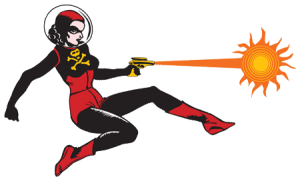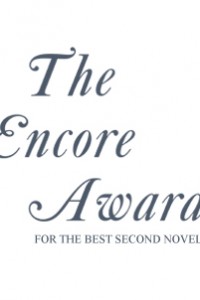Tiptree Award to Be Renamed
 The Tiptree Motherboard, the seven-member committee in charge of the James Tiptree, Jr. Literary Award for books “encouraging the exploration and expansion of gender,” has announced plans to change the name of the award in the future. In a post titled “Alice Sheldon and the name of the Tiptree Award” updated on September 11, 2019, they wrote
The Tiptree Motherboard, the seven-member committee in charge of the James Tiptree, Jr. Literary Award for books “encouraging the exploration and expansion of gender,” has announced plans to change the name of the award in the future. In a post titled “Alice Sheldon and the name of the Tiptree Award” updated on September 11, 2019, they wrote
We said we would be listening and we have. We’ve read your thoughtful and pain-filled emails, tweets, and Facebook posts. We are sorry for the harm that’s been done, especially to some of the most marginalized members of our community.
We recognize that the award is necessary to the community, but can’t go on under its existing name. Now we need to figure out what to do next and how to do it. We’re working on it. And we’ll say more within a month.
An earlier version of the post discussed “questions raised on social media about whether the name of the Tiptree Award should be reconsidered. The Award was named after James Tiptree, Jr., the persona under which Alice Sheldon published. The questions relate to Alice Sheldon’s actions at the end of her life. On May 19, 1987, she shot first her husband, Huntington Sheldon, and then herself.” The post explained that “friends and family – and the science fiction community at the time – viewed this tragedy as resulting from a suicide pact” but acknowledged that there are different interpretations: “The story can also be seen as an act of caregiver murder: where a disabled person is killed by the person, usually a close family member, who is responsible for their support.” The post went on to include detailed discussion of the known facts and informed speculations about the matter.
At the time of the initial post, the members of the Motherboard did not “believe that a change to the name of the Tiptree Award is warranted now. But we believe that this is a very important discussion, and we do not think it is over. The community that has grown up around this award since its founding in 1991 deserves to have its voice heard in any conversation as significant as renaming.” After soliciting and receiving more feedback, they made their later decision.
This is the latest in a series of conversations about the sometimes problematic legacy of major figures in the field (and the appropriateness of using their names and images in award materials) that have unfolded in recent years, with results including the retirement of the bust of H.P. Lovecraft from the World Fantasy Award trophies and the renaming of the John W. Campbell Award for Best New Writer, and the Campbell Conference.
For the full statement, see the Tiptree Award website.
 While you are here, please take a moment to support Locus with a one-time or recurring donation. We rely on reader donations to keep the magazine and site going, and would like to keep the site paywall free, but WE NEED YOUR FINANCIAL SUPPORT to continue quality coverage of the science fiction and fantasy field.
While you are here, please take a moment to support Locus with a one-time or recurring donation. We rely on reader donations to keep the magazine and site going, and would like to keep the site paywall free, but WE NEED YOUR FINANCIAL SUPPORT to continue quality coverage of the science fiction and fantasy field.





I wasn’t aware the John W. Campbell Memorial Award for Best Science Fiction Novel had also been renamed.
Comes down to this: nobody is good enough for them.
Meh. Alice Sheldon, brilliant, deeply depressed, deeply repressed, a brilliant writer, psychologist, a world traveller since nearly birth, an icon. What would Ursula K. LeGuin say? How about Julie Phillips who wrote the incredible biography of this scintillating, tortured human being say?
An appalling, revisionistic decision.
It comes down to this: it is inappropriate to name an award after a murderer. However “tortured” Alice Sheldon might have been, there is ample evidence to indicate that there was no suicide pact, that Sheldon’s husband did not wish to die, and that Sheldon had engaged in other abusive behaviors toward him in their lifetime.
Naturally there is a contingent of fandom who will steadfastly continue to refuse to look at the genre’s past through anything other than rose-colored glasses; who will angrily resist any suggestion that perhaps some of our heroes had feet of clay (or worse) after all, and who believe that any revelations about SF’s problematic figures are part of a sinister campaign by a shadowy “them” to mind-control us into political correctness.
But these reckonings always come due. Alice Sheldon committed murder. Lovecraft and Campbell were racists. Marion Zimmer Bradley, Forrest J. Ackerman and very likely Arthur C. Clarke were pedophiles. While these revelations don’t erase their achievements in writing or fandom, they are an indication that science fiction needs to come to terms with their human failings and not name awards after them for which they’re no longer especially relevant anyway.